1530 Hrs GMT
London
Thursday
22 April 2010
Editor © Muhammad Haque
Directly elected mayor-'led' Doncaster council has been a disaster for the local community. Supplying materials for sober reflections in the London [Rupert Murdoched] Times making grim reading... And still no song that changing the structures of a local council, such as Doncaster, from one where the principle of diverse views by elected councillors prevails to one with reduced or zero democratic say by councillors is an “improvement” for vital needs of the local community. Tower Hamlets borough council in London’s EAST END is simmering with tensions [at the time of writing at 1520 GMT on Thursday 22 April 2010] that threatens to explode in a big way unless the long overdue democratic actively accountable and thoroughly legitimate and totally honest and dedicated representation is established in and through the council. Yet there is a movement afoot in the area, under the ‘profile’ of the likes of Ken Livingstone, to undermine the local community and to hijack the council by imposing a semi-dictatorial transfer away from the elected councillors and into the dark, unaccountable backrooms of private profiteers and their nominees operating via the whims, the caprices and the stupidities of a so-called ‘elected, executive’ mayor. The people in Tower Hamlets, the community of Tower Hamlets people– as distinguished from the interlopers and intruders who have arrived for their own set and visible agenda of pursuing their greedy goals at the expense of our own people in the community of all backgrounds – have the choice on 6 May 2010 to prevent this takeover bid. VOTE ‘NO’ on 6 May 2010 to an ‘executive’ mayor in Tower Hamates. Defend the community.
[To be continued]
________________
From The Times
December 12, 2009
Doncaster was always a poor dreary town — but so much better off than today
Natalie, 25, with her brother Carl, 22, and friend Matthew, 20
Natalie, 25, with her brother Carl, 22, and friend Matthew, 20. All are struggling to find regular work in a town whose manufacturing industries have all but disappeared
Image :1 of 3
Janice Turner
* 6 Comments
Recommend? (9)
They hang around beneath a sign saying “antisocial behaviour will be reported to the police”. I’d been wary of approaching them, these virtual poster kids for the Tories’ broken Britain campaign. Natalie with her piercings, her brother Carl, Matthew in his baseball cap on his too-small bike. And this street on Wheatley Park estate in Doncaster has a troubled look.
Among the many neat-hedged homes with spangly new gates and clean cars, are gardens piled with burst bin-bags, signs warning of scary dogs, a notice of an eviction posted on a window. A door opens and I see beyond an obese tattooed man into a chaotic house, where a toddler wanders pantless. The houses ring the local pub, boarded up since the summer, its tattered Union Jack still flying.
Indeed, in crude political terms Matthew, Natalie and Carl are everything that David Cameron thinks is wrong with modern Britain. Natalie, 25, is a single mother: I ask if she regrets having her son, now 5, so early. “I do, because it’s hard. But the thing is, I left it late. All my friends had their babies at 15, 16.” Her partner was a heroin addict who got her on to drugs too — she’s been clean for two years now — then stole her money and put her in rent arrears, so she lives with her mother. She had a job at Matalan but it didn’t work out; dreams of getting on a catering course. Carl has never worked: he holds up hands, fingers twisted by a congenital condition that gets painful in winter. Matthew has done all sorts: landscape gardening, tree surgery, decorating. But without a qualification, a proper job eludes him.
“You should get yourself down to that big shiny college in town,” I say. “Get a diploma. You sound fantastically employable.” And he grins and glows, as if it’s a long time since he has heard a word of praise or hope.
Related Links
* Tale of two towns: one slated and one praised
* Dubai cheaper than Doncaster as room rates tumble
They are sweet kids, in their early 20s, but seeming younger, not hard like London youths, unworldly, guileless. They are keeping things together pretty well considering their dead-end lives: I’d be smoking a crack pipe as big as the Don bridge if I had to live in Wheatley on £7 a day.
It turns out, of course, none of them really had a father. Natalie and Carl’s father beat up their mother. Matthew never knew his at all: “A dad would have been great to teach me stuff, to watch out for me.”
I grew up just a few miles from here, in the 1970s on another estate. But I never knew kids like these. Memory blurs and nostalgia gilds and mostly I was looking at books or boys or in the mirror, not monitoring my community’s socioeconomic indices. But I don’t recall anyone whose father was unemployed. I can name the three kids whose parents were divorced and, although we all drank — in town centre pubs from 14, my dad’s home-made wine outside youth-club discos — I never once encountered drugs. One girl got pregnant.
But certainly within our Lego-box homes, cheap postwar housing that advanced steadily across the pea fields (because, as we learnt much later, Labour aldermen had flogged off green belt for bribes) our lives were uniform. Your box might have two bedrooms or four, be private (like ours) or council, but all recalled that Jarvis Cocker line “Your house was very small, with woodchip on the wall”.
My father began work aged 14 as a colliery weighman, moving into office work at the National Coal Board; my mother was a cleaner at a car showroom. Until I went to university, I never flew in a plane or ate “foreign” food or met anyone from public school. The biggest wealth differential would be a teacher’s kid going to France in a caravan while you went to Mablethorpe. My life was unbelievably dreary, but then so was everyone else’s.
In 1980 I leapt gleefully on that southbound train away from Doncaster’s insularity, civic ugliness, its Neanderthal men (I kept my vow not to marry a northerner) and returned rarely. Funerals mostly. And each time the town looked different. Huge gleaming projects rose: a massive higher education college called, groovily, The Hub; The Dome, a leisure park with flumes and a multiplex; a private prison that, approaching town, I always confuse with the Frenchgate centre, Doncaster’s posh new mall, full of Top Shop and Waterstones, replacing the tatty Arndale where I’d mooch on Saturdays outside Chelsea Girl.
But along with these municipal big boys, the product of £1.4 billion of central funding, Doncaster was reaching other highs: most corrupt council, worst child protection services (seven Baby P deaths in five years), fastest-growing number of benefit claimants, most burglaries, most heterosexual HIV cases. And around my old haunts, the contrast between shiny and grim grew more pronounced. Evidently many people had acquired better lives — new cars, plasma tellies, extentions — but others had tumbled very far down.
There is a crowd outside Doncaster Jobcentre at 9am. “Anyone had an industrial acccident and wants to make a claim,” calls a shady bloke from an ambulance chaser law firm. The place is airy, spot-lit, with wooden floors and funky furniture. The manager, Ann Jackson, is rightly proud of how far unemployment offices have come from the grimy, shame-inducing places, as seen in The Full Monty.
But there is no denying the scale of Doncaster’s ills: one in five adults is on benefits. As I search the push-button screens for vacancies, the man beside me says: “Look, they want elves! I could apply I’m small enough.” An elf at Santa’s Grotto, like Santa himself, is paid minimum wage, with the possibility of tax credits. Most vacancies say the same. Even the employed here are, in effect, subsidised by the State.
Ms Jackson relates success stories: the steelworker now working with disabled children, the women at the old Burberry factory who moved into elderly care. The biggest employer here is the NHS. Few jobs involve making or selling anything, actually creating wealth. Doncaster has an annual output gap of £830 million, the difference between what it earns and what government has to spend on it.
It is like a town that, having been reduced to rubble by two mighty earthquakes, is shrugging at a mere aftershock. The pits, the steel, went in the 1980s. The rest of manufacturing,the tractor company, glass maker, ICI, a decade later. A few shops are boarding up now on the high street but there is nothing significant left to close.
I meet up with an old schoolfriend, Antony Pawlett, now the director of Doncaster’s business school. He tells me of The Hub’s travails trying to mould lost kids like Matthew and Natalie into hairdressers and plasterers. “You know how hard it was for us, the first in our family to go to university?” he says. “Well, for these kids, they’re the first ever to have a job.”
Doncaster was always plagued by philistinism. I grew up in a borough of 250,000 people without a single bookshop! Antony and I recall clever classmates who, despite teachers’ entreaties, left at 16. But it didn’t matter then. They all went to sturdy jobs in industry: proudly buying rounds of drinks for us student paupers.
Now it matters a great deal that only 7 per cent of people in Doncaster have any higher education, a third of the national average. “The sad thing is,” Antony says, “Doncaster is good at creating small businesses. But because we don’t have the skills, the jobs go to people outside the borough.”
The Mayor of Doncaster, Peter Davies, an English Democrat with tap-room views on immigrants and gay pride marches, also bemoans the skill shortages. But he blames social breakdown on “the liberal agenda”, a decline in moral standards. Which is the Tory view too, although David Cameron may balk at Mr Davies’s recent praise for the Taleban and its “ordered system of family life”.
Later visiting a terrible street in Balby, back-to-back houses with alleys full of rubbish and rats, I meet an old, very sick man, Tony Howard, an ex-soldier whose mobility scooter was stolen by drug addicts. A sadder crime is hard to invent. I expect him to blame asylum seeker neighbours for his lawless street. He dislikes their transience, that they chuck stuff in his garden when they move on, but he says simply: “Things have not been the same here since the pits went.”
There is no sense in romanticising a dead industrial era but this community changed irrevocably when men lost their income, status, pride, wherewithal to marry and keep their families. There have always been wayward fathers. And countless Doncaster families met every wave of recession with fortitude and unity. But there this no denying that 25 years ago the fathers of kids like Natalie, Carl and Matthew lost their footing and stumbled. Now their children can’t even find the first rung.
Doncaster’s finest
Several renowned actors have risen from the coal dust to become stars of stage and screen. Brian Blessed was born near by in Mexborough, and Dame Diana Rigg spent the first two years of her life in the town before leaving for a more exotic childhood in India. The Second World War hero Douglas Bader, who played an important role in both the Battle of France and the Battle of Britain despite having lost both legs in an air crash in 1931, lived much of his life in the town. Thomas Crapper, who as the inventor of the modern flush toilet revolutionised sanitation across the world, was born in the small town of Thorne, near Doncaster, the year before Queen Victoria came to the throne. Other famous names associated with the town include the motoring show presenter Jeremy Clarkson, below, the TV scriptwriter Roy Clarke, who wrote Open All Hours, Keeping up Appearances and Last of the Summer Wine, and the opera singer Lesley Garrett. Kevin Keegan, the former footballer and manager of Newcastle United and England, was born in the village of Armthorpe, just outside Doncaster. Although Billy Bremner was born in Scotland, to most in the town, he had Doncaster in his blood. The Leeds United star made his name with Doncaster Rovers in the 1980s, where he finished his managerial career. He died in a small village on the edge of the town in 1997.
Vital statistics
First mentioned in the 1003 will of Wulfric Spott; incorporated in 1461 when the first mayor took office Population 286,000 (metropolitan borough)
Area 224 sq miles
Ethnicity 98% white
Education 38% of those aged 16 to 74 have no qualifications
MPs Rosie Winterton, Ed Miliband, Caroline Flint and Jeff Ennis (all Labour)
Main industry distribution
Former industries Coal, glass, steel, textiles, railways, aviation and tractors
Sport Doncaster Rovers play in the Championship
* Print
* Email
Bookmark and Share
Your Comments
6 Comments
(Displaying 1-6)
Order By:
* Newest first
* Oldest first
* Most recommended
Report item as: (required) X
Comment: (optional)
User Image
Bryan Varnam wrote:
I was born in the Doncaster area in 1943, attended Doncaster College where I obtained my ONC & HNC. I was employed by the NCB at various levels before moving down to their pensions investment office on London in 1973 until I was ill health retired in 1995 when I returned to Doncaster. Unlike a lot of the Southerners I encountered the people of Doncaster were mainly honest hardworking straight forward people who just got on with their lives without having the unfounded superiority complex that some southerners have. The article by Janice Turner totally ignores the decimation of towns like Doncaster caused by policies of Thatcherism and its evil results. The town and its residents are attempting to improve the situation but are ill served by people with bees in their bonnets who take an opportunity to get themselves questionable publicity by writing biased inaccurate articles. When you read some her comments you can see that she is patheticaly slanting them to her southern audience.
December 26, 2009 3:41 PM GMT on community.timesonline.co.uk
Recommend? (3)
Report Abuse
Permalink
User Image
michael mckeary wrote:
Learned helplessness, once a Government installs learned helplessness then its very difficult to restore confidence. clinical depression then takes root and becomes impossible to eradicate it. One should never shut a massive employer altogether because you just suck the soul out of the town. Now we look at taxpayers money that the Gov has given to the Greedy Bankers, we see shame. Sad really how politicians can never see this, probably too busy doing up their houses with expenses. many thanks mick mckeary
December 12, 2009 11:15 AM GMT on community.timesonline.co.uk
Recommend? (5)
Report Abuse
Permalink
User Image
Peter Hurst wrote:
This article is hilarious.
Never seen so many "It's Grim Up North" cliches in one article.
Janice, expect a BBC producer to contact you soon about a new series/soap called "Doncaster Races".
December 12, 2009 10:12 AM GMT on community.timesonline.co.uk
Recommend? (5)
Report Abuse
Permalink
User Image
roger HUDSON wrote:
Jen Wirral
Going to live in Afghanistan would be a step up from Donny!
December 12, 2009 10:02 AM GMT on community.timesonline.co.uk
Recommend? (8)
Report Abuse
Permalink
User Image
Jen Wirral wrote:
A millionaire from Doncaster. And you've gone to live in SAUDI ? What for?
December 12, 2009 9:06 AM GMT on community.timesonline.co.uk
Recommend? (1)
Report Abuse
Permalink
User Image
Leigh Vernier wrote:
It was miles better then.
Lived in dirt poor two up, two down.
Get up early. Run to bakery. get
newly baked loaf. Wonderful aroma.
Into butchers. Cheery bloke always ruffled my hair. Sawdust on marble floor. Meat hanging on iron hooks.
Next, lead milkman's giant horse over cobbles. School.
Avoid the violent teachers and bullies.
Swop cigarette cards. Play snobs.
Non school days, hid on bus top. Off to idyllic green fields and "Black Woods" where the ghosts lurked.
Took off shoes so not to scrape them and get good hiding from Mum.
Won place at local grammar. Mum bought cast off school blazer.
Saw whole new world of books, ideas, smiles.
Uni. Doubled it secretly with art college.
Started my own business. 18 hour days. Made first million.
80s: sensed impending doom. Morality, fair play gone. Banks went to hell.
1994 Left for Saudi. Set up business there.
Look at UK today. Tempted to cry for
what was lost.
December 12, 2009 7:40 AM GMT on community.timesonline.co.uk
Recommend? (10)
Report Abuse
Permalink
Subscribe to:
Post Comments (Atom)














![Kay Jordan marched in Hanbury Street, Princelet street on 17 January 2006 [pictured below]](https://blogger.googleusercontent.com/img/b/R29vZ2xl/AVvXsEjmFpkcZgAW1eZKWId6O-xApvo7_zu4rL0QLz_ByB_FHaKbyUkAFfaPT1RdxXqjX-YVvveRu2zdPyr0pXqiFK-0SAjQd5vyTwGgGDnyU600Gk-gu-MueRhRIg_UhFT66fo8gzCl2tM4BX-8/s760/KHOODEELAAR%2521+No+to+Crossrail+Hole%252C+Demo+in+Hanbury%252C+Spelman%252C+Princelet+Streets+and+Brick+Lane+London+E1+17+January+2006.jpeg)
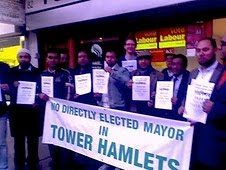
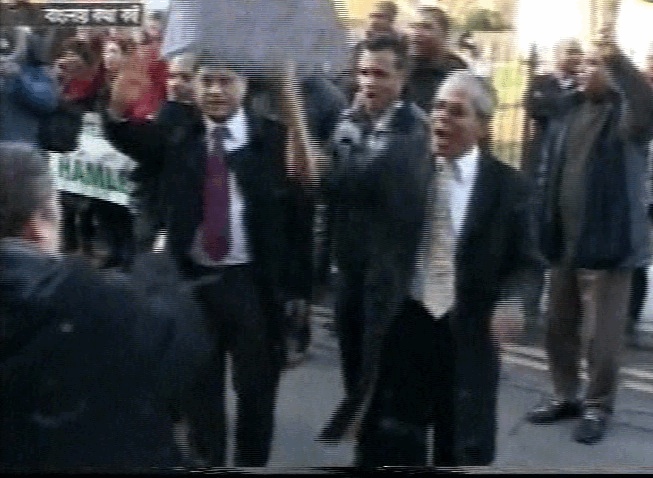



















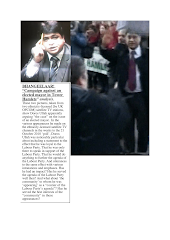
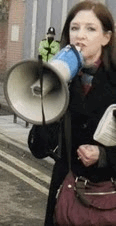

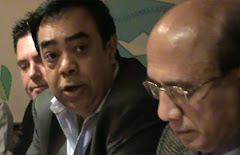

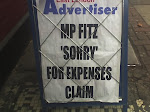
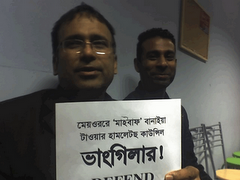
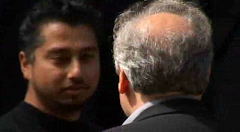
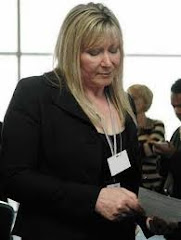
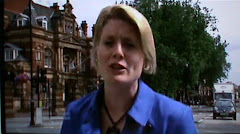
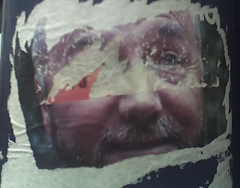

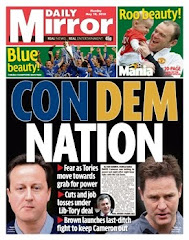
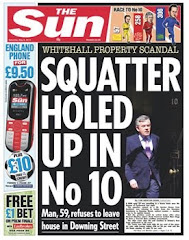
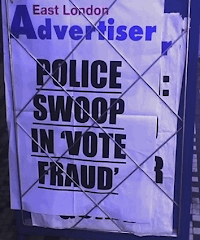
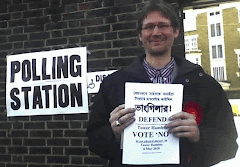
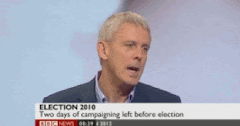

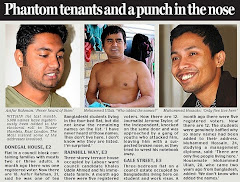
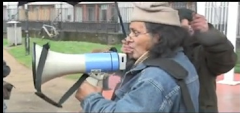


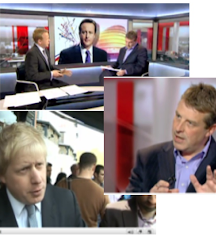
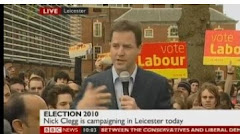
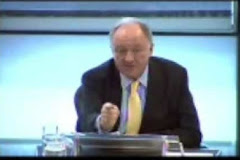
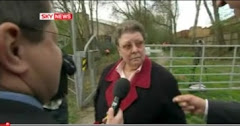
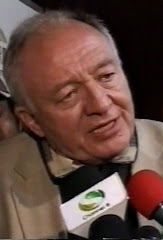
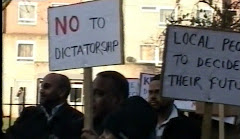
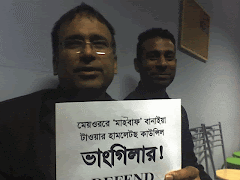

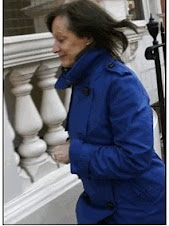
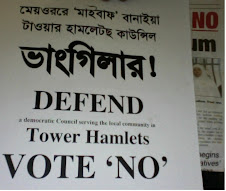
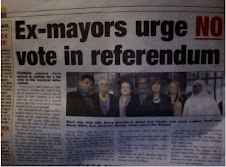
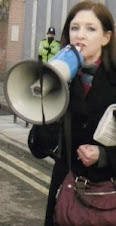
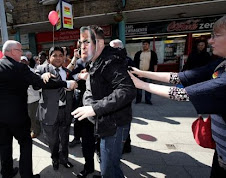
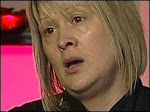
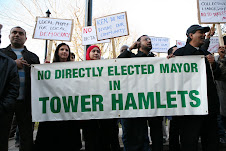
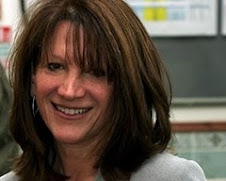
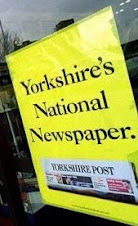

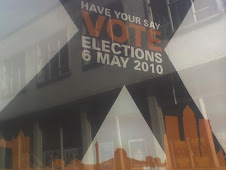
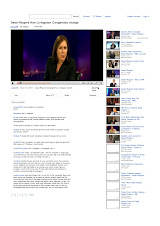
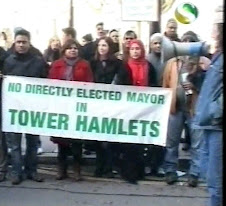
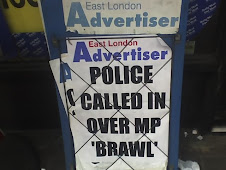
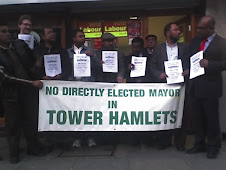
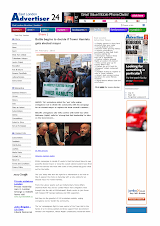
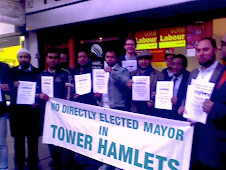
No comments:
Post a Comment